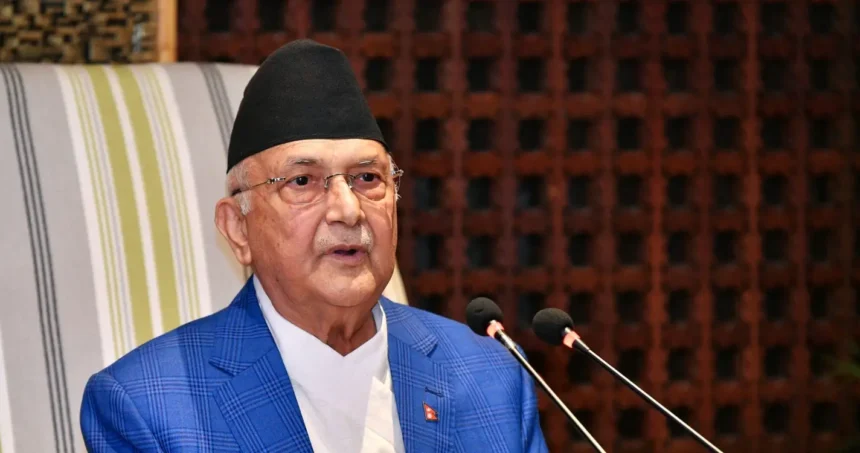KP Sharma Oli has taken oath as the Prime Minister of Nepal for the 4th time, a development that holds significant implications for India. Oli, a seasoned politician known for his strong stances, especially on issues involving India, is expected to influence the relationship between the two neighboring countries in several ways. His leadership has often been a point of dispute in Nepal-India relations.
India’s Response
India has welcomed Oli’s appointment, with Prime Minister Narendra Modi congratulating him and expressing a desire to work closely with the new government. However, India will be closely watching Oli’s moves, especially regarding Nepal’s foreign policy and border issues.
Congratulations @kpsharmaoli on your appointment as the Prime Minister of Nepal. Look forward to working closely to further strengthen the deep bonds of friendship between our two countries and to further expand our mutually beneficial cooperation for the progress and prosperity…
— Narendra Modi (@narendramodi) July 15, 2024
KP Sharma Oli’s Political Journey
Oli’s political journey began in the 1970s when he joined the communist movement in Nepal. Rising through the ranks, he became a key figure in the CPN-UML. His first term as Prime Minister began in 2015, during which he faced significant challenges, including the aftermath of the devastating earthquake and the economic blockade by India. KP Sharma Oli ‘s response to these challenges was to seek closer ties with China, leading to the signing of several agreements under the Belt and Road Initiative (BRI).
Impact on India-Nepal Relations
Oli first became Prime Minister in October 2015. His tenure was marked by a significant event – the 2015 Nepal blockade. During this time, India was accused of imposing an unofficial blockade on Nepal, leading to severe shortages of essential goods. Oli blamed India for the blockade, which strained relations between the two countries. He accused India of interfering in Nepal’s internal affairs and trying to destabilize his government.
In response to the blockade, KP Sharma Oli sought to strengthen ties with China. He signed several agreements with Beijing, including a trade and transit agreement, allowing Nepal to use Chinese ports for trade and reducing its dependence on India. Oli’s government also joined China’s Belt and Road Initiative (BRI) in 2017, marking a significant shift in Nepal’s foreign policy towards China.
Oli returned as Prime Minister in February 2018. His second term was marked by continued tensions with India. He maintained a nationalist rhetoric and often criticized India for interfering in Nepal’s affairs. However, he also expressed a desire to improve relations with India. In 2021, he stated that Nepal could not progress by pursuing an anti-India policy.
Oli’s tenure also saw a significant border dispute with India. In 2020, his government published a new political map of Nepal that included territories claimed by India, such as Lipulekh, Kalapani, and Limpiyadhura. India rejected this map, calling it unilateral. The dispute further strained relations between the two countries.
Recent Developments
Oli’s recent return to power in July 2024 has raised questions about the future of Indo-Nepal relations. His coalition government includes the Nepali Congress, which has traditionally had better relations with India. This could lead to a more balanced foreign policy. However, KP Sharma Oli’s past actions and statements suggest that he will continue to assert Nepal’s sovereignty and seek to reduce its dependence on India.
Oli’s attitude towards India has significant implications for Indo-Nepal relations. His nationalist stance and close ties with China could lead to further tensions. However, his coalition government and recent statements suggest a possible shift towards a more balanced approach. The future of Indo-Nepal relations will depend on how Oli navigates these complex dynamics.
India’s Response
India has welcomed K P Sharma Oli’s appointment, with Prime Minister Narendra Modi congratulating him and expressing a desire to work closely with the new government. However, India will be closely watching Oli’s moves, especially regarding Nepal’s foreign policy and border issues.










